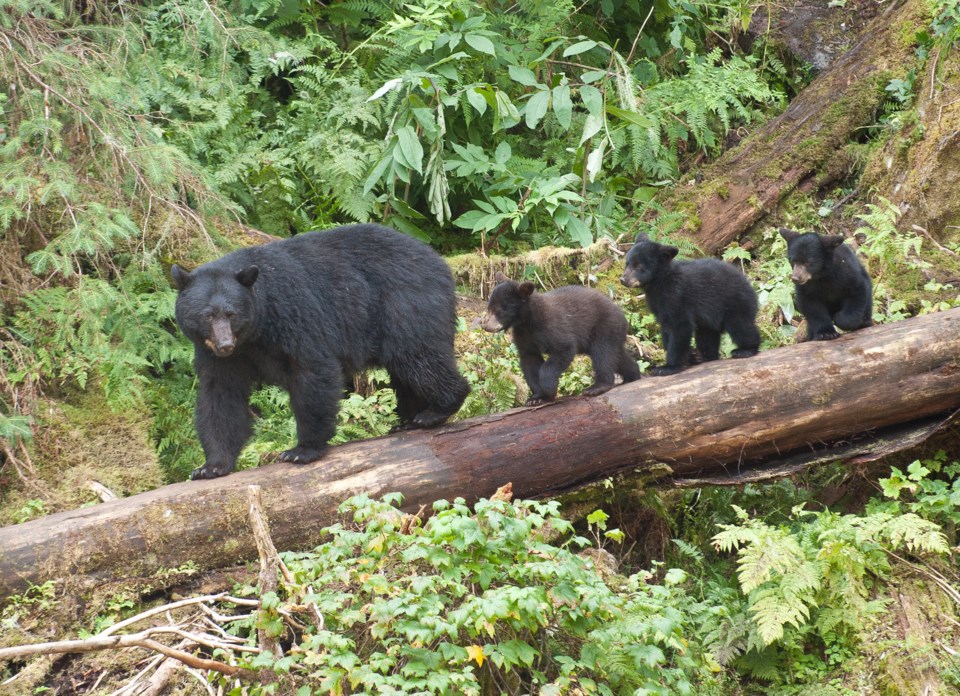NEWS RELEASE
MINISTRY OF NATURAL RESOURCES AND FORESTRY
*************************
Most human-bear conflicts occur when bears are attracted by smells and rewarded with an easy meal. When bears pick up a scent with their keen noses, they will investigate it – even at your cottage.
Bears will return to an available food source, so keep your cottage clear of attractants like:
- Open garbage bins
- Grease and food residue from barbecue grills
- Ripe fruit that has fallen
- Meat scraps and food in the composter
- Bird feeders
- Pet food
- Outdoor beverage fridges.
It takes all cottagers working together to be bear wise. Remove attractants or take precautions to avoid unwanted visitors.
When enjoying Ontario’s campsites, lakes, forests or hiking trails, remember you are in natural bear habitat. Bears have a keen sense of smell, and are attracted by the odour of all food and garbage. Avoid conflicts with bears while camping by being prepared and aware.
Prepare:
- Plan your trip with safety in mind by learning how to avoid attracting a bear.
- Teach children how to be Bear Wise and never approach or run from a bear. Keep children between adults while hiking.
- Think about how to safely store your food and garbage while on the campsite.
- Pack food with special care.
Be Bear Wise:
- Look for signs of bear activity near your campsite.
- Keep dogs on a leash. The bear may follow the dog back to its owner.
- Follow the advice set out by Ontario Parks or the private campground
- Use bear-resistant containers or sealed plastic bags to store food when camping or in back country.
- Hang food at least 4 metres (13 feet) above the ground and 3 metres (10 feet) from tree limbs.
- Never eat, cook or store food, cooking equipment or toiletries in your tent.
- Clean up at your campsite: Clean fish away from your campsite, burn scraps and fat droppings, drain dish water.
Visit ontario.ca/bearwise for more tips on being bear wise.
Black bears live in most parts of Ontario. Knowing what to do if you encounter a bear is being bear wise.
Avoid encounters:
- Make noise when you move through heavily wooded areas, especially if you are near a stream or waterfall, where bears may not hear you.
- Singing, whistling or talking will alert bears to your presence, giving them a chance to avoid you.
- Keep your eyes and ears open for signs of a bear like tracks, claw marks on trees or droppings.
- DO NOT wear headphones.
- Be aware of your surroundings, especially if you are doing activities outside (i.e. hiking, jogging, cycling, gardening, berry picking or camping) where bears may not realize you are there.
- If you are out with a dog, keep it on a leash. Uncontrolled, untrained dogs may actually lead a bear to you.
Think about safety:
- Carry a whistle or air horn.
- Carry and understand how to use bear spray.
- If you are in “back country” consider carrying a long-handled axe.
If you do spot a bear:
- Remain calm and do not run, climb a tree or swim.
- Slowly back away while keeping the bear in sight.
- Watch the bear and wait for it to leave, if it does not leave wave your arms and make noise.
- If you are near a building or vehicle, get inside as precaution
What to do if an encounter results in an attack:
- Use bear spray.
- Fight back with everything you have.
- Do not play dead unless you are sure a mother bear is attacking in defence of her cubs.
*************************



